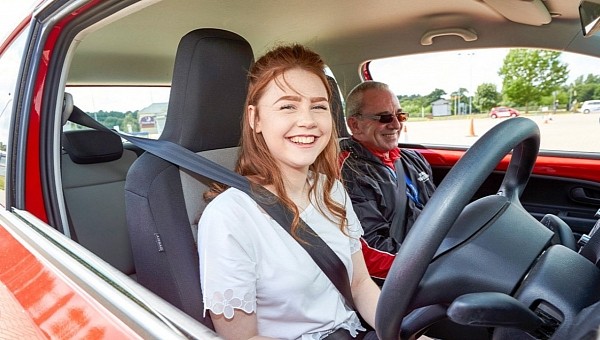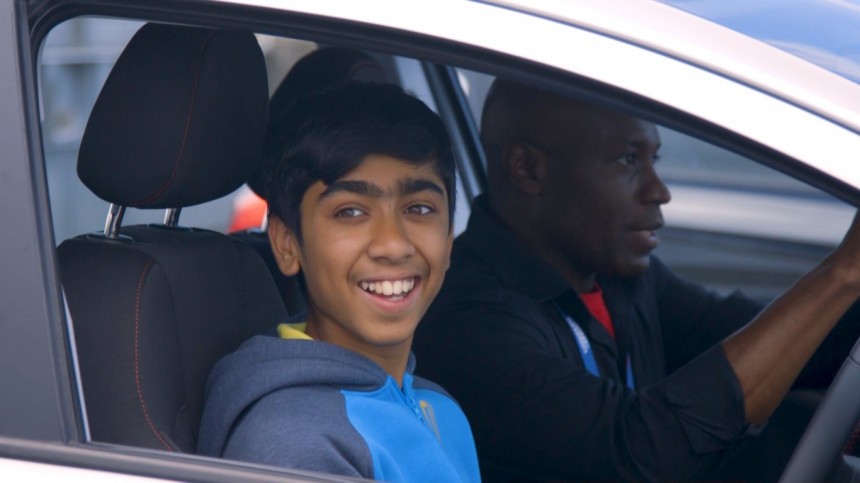You surely remember how you felt the first time you got behind the wheel. It was anxiety and excitement and everything in between. The regulations on what age you must be to drive on roads differ depending on where you’re from, but learning to drive can be a challenging feat for some. A survey conducted by the UK-based Young Driver tries to answer a difficult question: “What is the best age to learn to drive?”
For me, everything was clear from a very young age – I wanted to learn to drive as soon as possible. Born and raised in a concrete jungle, I didn’t have the opportunity of learning to drive on non-public roads, so I had to wait until 18 to apply for driving school, as per Romanian regulations. But if it were possible, I would’ve loved to start learning and practicing earlier.
Other parts of the world have looser regulations. In the United States, you can learn the art of driving at 16 or even 14. It all depends on which state you’re from (some states require you to be 18 years old). In the U.K., you can start driving when you're 17. Or you can opt for a provisional driving license when you’re 15 and 9 months old.
Young Driver is a driving school founded in 2009 - it has provided more than a million lessons so far. Anyone above the age of 10 and with a height over 1.42 meters (4.65 feet) can get behind the wheel of a dual-controlled car on private property.
The company is challenging whether 17 is the right age to learn to drive, even if that has been the legal requirement in the U.K. since 1903. To do so, Young Driver surveyed driving instructors, parents, and newly qualified drivers.
And here’s what they found out. Just over two-thirds (69%) of driving instructors admitted they believe youngsters learn better before turning 17. The instructors can compare groups as they teach both over 17s on the road and 10 to 17 years olds at the company’s private venues.
Parents have the same opinion as the instructors – out of 2,400 parents who were surveyed, 82% of them feel that 10 to 17-year-olds are more receptive to messages regarding risk and safety than those over 17. Four hundred past participants of the courses, who are now 17 and over, were questioned. 84% of those agreed that they were indeed more receptive to road safety messaging at a younger age.
Young Driver also analyzed the risk of accidents of the drivers who carried out pre-17 driving lessons with the driving school. It found that they are significantly less likely to have an accident in the first six months after passing the driving test, with a statistic of one in 29. The national average is one in five, which is a major drop.
To be clear, there are many reasons why teenagers under 17 should not drive on public roads. But that doesn’t mean they shouldn’t be able to learn before that age. Most of us remember how easily we absorbed information at that young age, so why not take advantage of that and learn how to drive safely?
Sue Waterfield, head of marketing at Young Driver, explained: “You can take your time and really help them to feel comfortable with the controls of the car and things like braking distances and blind spots, before they get anywhere near a real road. It also helps reduce the time and money spent on tuition once they are old enough to get their provisional license and take their test.”
74% of the instructors said those under 17 who completed the courses typically require fewer on-the-road lessons. What’s more, 79% of instructors believe they could teach more in an hour at the private Young Driver venue than they would normally do during one hour spent on the road. Of course, on-road practice is critical and necessary, but there are valuable lessons to be learned beforehand on closed courses.
One of the driving instructors, Anaya Saddall, explained that students aged 17 and 18 usually don’t concentrate as much as they have other stuff on their minds, such as exams, friends, or social media. When it comes to younger kids, like 12-year-olds, you can see that their mind is fully concentrated on driving. And that’s one of the primary reasons why they often learn more in an hour compared to 17-year-olds. She added that the older age group sometimes has preconceived ideas from parents and peers, complicating the learning process.
I believe it is worth exploring teaching young kids to learn how to drive. From a driving school perspective, you need to invest in private venues or at least have access to them. But ultimately, it can make kids more confident in driving and make our roads safer.
For me, everything was clear from a very young age – I wanted to learn to drive as soon as possible. Born and raised in a concrete jungle, I didn’t have the opportunity of learning to drive on non-public roads, so I had to wait until 18 to apply for driving school, as per Romanian regulations. But if it were possible, I would’ve loved to start learning and practicing earlier.
Other parts of the world have looser regulations. In the United States, you can learn the art of driving at 16 or even 14. It all depends on which state you’re from (some states require you to be 18 years old). In the U.K., you can start driving when you're 17. Or you can opt for a provisional driving license when you’re 15 and 9 months old.
Young Driver is a driving school founded in 2009 - it has provided more than a million lessons so far. Anyone above the age of 10 and with a height over 1.42 meters (4.65 feet) can get behind the wheel of a dual-controlled car on private property.
The company is challenging whether 17 is the right age to learn to drive, even if that has been the legal requirement in the U.K. since 1903. To do so, Young Driver surveyed driving instructors, parents, and newly qualified drivers.
Parents have the same opinion as the instructors – out of 2,400 parents who were surveyed, 82% of them feel that 10 to 17-year-olds are more receptive to messages regarding risk and safety than those over 17. Four hundred past participants of the courses, who are now 17 and over, were questioned. 84% of those agreed that they were indeed more receptive to road safety messaging at a younger age.
Young Driver also analyzed the risk of accidents of the drivers who carried out pre-17 driving lessons with the driving school. It found that they are significantly less likely to have an accident in the first six months after passing the driving test, with a statistic of one in 29. The national average is one in five, which is a major drop.
To be clear, there are many reasons why teenagers under 17 should not drive on public roads. But that doesn’t mean they shouldn’t be able to learn before that age. Most of us remember how easily we absorbed information at that young age, so why not take advantage of that and learn how to drive safely?
74% of the instructors said those under 17 who completed the courses typically require fewer on-the-road lessons. What’s more, 79% of instructors believe they could teach more in an hour at the private Young Driver venue than they would normally do during one hour spent on the road. Of course, on-road practice is critical and necessary, but there are valuable lessons to be learned beforehand on closed courses.
One of the driving instructors, Anaya Saddall, explained that students aged 17 and 18 usually don’t concentrate as much as they have other stuff on their minds, such as exams, friends, or social media. When it comes to younger kids, like 12-year-olds, you can see that their mind is fully concentrated on driving. And that’s one of the primary reasons why they often learn more in an hour compared to 17-year-olds. She added that the older age group sometimes has preconceived ideas from parents and peers, complicating the learning process.
I believe it is worth exploring teaching young kids to learn how to drive. From a driving school perspective, you need to invest in private venues or at least have access to them. But ultimately, it can make kids more confident in driving and make our roads safer.








